I've investigated both the Next JS documentation as well as similar questions like Slow page build time in development with Next.js and TypeScript (which is TypeScript specific - this question concerns JavaScript and does not involve compiling TypeScript)
I am using next.js 10.0.9 and after running next, my app takes around 50 seconds to build and begin responding to HTTP requests.
After making a change, it takes another 12 seconds to rebuild. This seems much slower compared to other popular JS frameworks.
More detail:
npm run devsimply runsnextand next takes around 50 seconds to become responsive (just after thecompiled successfullyis printed.
This means tasks like git bisect to find where a bug was introduced are very slow, as next has to do a full 1 minute rebuild after checking out each commit.
$ npm run dev
> hl-alpha-frontend@1.0.0 dev /home/mike/Code/myapp/alpha/frontend
> next
ready - started server on 0.0.0.0:3000, url: http://localhost:3000
info - Loaded env from /home/mike/Code/myapp/alpha/frontend/.env.local
info - Loaded env from /home/mike/Code/myapp/alpha/frontend/.env.development
info - Loaded env from /home/mike/Code/myapp/alpha/frontend/.env
warn - React 17.0.1 or newer will be required to leverage all of the upcoming features in Next.js 11. Read more: https://err.sh/next.js/react-version
Warning: Built-in CSS support is being disabled due to custom CSS configuration being detected.
See here for more info: https://err.sh/next.js/built-in-css-disabled
info - Using external babel configuration from /home/mike/Code/myapp/alpha/frontend/babel.config.json
event - compiled successfully
event - build page: /
wait - compiling...
event - compiled successfully
- Making small changes to files requires around 12 seconds of
compiling...watching the triangle before the page becomes responsive atcompiled successfully.
How can I speed up next.js build times?
Updates
Running @next/bundle-analyzer helped - thanks @juliomalves - I can see we're loading all of react-heroicons (that's the big index.js in the picture) which ~I can easily fix with more specific imports.~ Update - this is now done though out the codebase
Old:
> import * as Icon from "@graywolfai/react-heroicons";
New:
import { BellOutline } from "@graywolfai/react-heroicons";
This has speed up my build times (after running next, the compiling task finishes faster). However my bundles still seem to be the same size.
